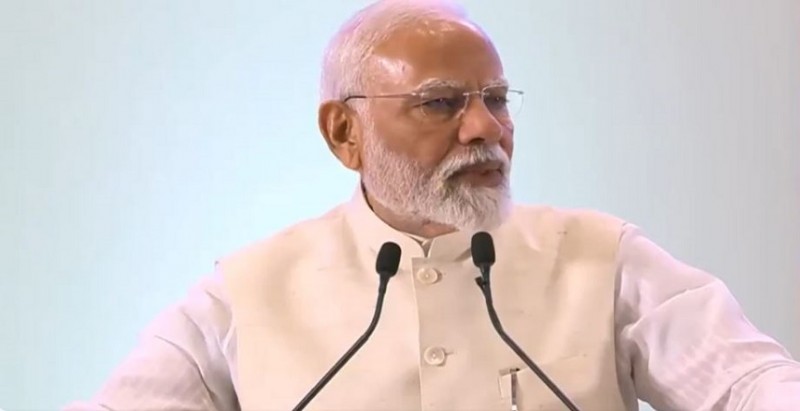
NEW DELHI: Prime Minister Narendra Modi addressed the National Conference of District Judiciary on Saturday, marking the 75th anniversary of the Supreme Court of India. In his speech, Modi highlighted the Supreme Court's pivotal role in upholding the Constitution and its values throughout India's history.
Modi praised the Supreme Court for its enduring role as a protector of the Constitution, emphasizing its critical function during national emergencies and periods of sovereignty concerns. He noted, "The trust in the Supreme Court and the judicial system has never wavered. This trust reinforces India's reputation as the 'Mother of Democracy.'"
The two-day conference, which focuses on enhancing the efficiency and speed of justice, is set to address various topics including human resources, judicial wellness, and the overall justice system. Modi stressed the importance of personal wellness for social wellbeing, stating, "Health must be a priority in the workplace, including in our judiciary."
The Prime Minister described the district judiciary as the cornerstone of the judicial system, crucial for delivering justice at the grassroots level. He expressed optimism that the conference would contribute to the advancement of the nation's judicial framework.
Modi highlighted the need for quicker justice in cases involving crimes against women, noting that fast-track courts and district committees established in 2019 aim to address these issues more effectively. He urged improvements in the functioning of these committees to boost public trust.
The Prime Minister also addressed the issue of pending cases in district courts, citing the need for technological advancements to expedite legal proceedings. "With around 4.4 crore cases pending, the introduction of new technology is essential. In the last decade alone, approximately Rs 800 crore has been invested in judicial infrastructure, and 75% of this investment was made in the past ten years," Modi said.
Modi discussed the progress in digitalization, including the third phase of the e-court project, which integrates AI and optical character recognition to analyze and manage cases more efficiently. He emphasized the shift towards a future-ready justice system through technological advancements.
The Prime Minister also highlighted recent updates to criminal laws, which aim to prioritize citizen protection and dignity, moving away from outdated colonial practices. He noted the removal of oppressive laws like sedition and the introduction of the Bharatiya Nyay Samhita, which focuses on protecting citizens rather than merely punishing criminals.
Modi called for the Supreme Court to provide training for district judiciary personnel to adapt to these changes and enhance their effectiveness. He concluded his address by congratulating the Supreme Court and the entire judiciary for their successful 75-year journey.
PM Modi Commemorates 75 Years of Supreme Court with Special Stamp and Coin
PM Narendra Modi to Visit Brunei and Singapore in Early September
Union Cabinet Approves 730 New Private Radio Channels and Revised Licensing Fees